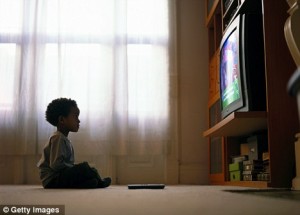Too Much Media Consumption? Race/Class…
 Creativity and imaginative play are incredibly important for children.
Creativity and imaginative play are incredibly important for children.
Sometimes I take parenting too seriously but it’s because I truly see it as a gift. An incredible opportunity to nurture and support young little minds that are growing at a rapid pace. In this journey I want my children to be truly inspired. I believe that’s a shared journey in our commitment to raising bilingual children – to stimulate them, to inspire them, and to encourage them to meet their full potential.
I’m hoping I can engage a lively conversation about the ways in which we inspire our children to grow, thrive and excel within environments that are often filled with obstacles to those very goals.
I have heard ongoing conversations by many PAASSC parents about the role of television in their child’s life. While many African American families are making the effort to reduce the amount of television that their children are watching a recent study published by Northwestern University finds that Black youth consume significantly more hours of media a day than their peers. The study identifies three concerning points:
- Black and Hispanic youth are more likely to have TV sets in their bedrooms (84% of blacks, 77% of Hispanics compared to 64% of whites and Asians), and to have cable and premium channels available in their bedrooms (42% of blacks and 28% of Hispanics compared to 17% of whites and 14% of Asians).
- Minority youth eat more meals in front of the TV set — with 78% of black, 67% of Hispanic, 58% of white and 55% of Asian 8- to 18-year-olds reporting that the TV is “usually” on during meals at home.
- Trends such as TV sets in the bedroom and eating meals with the TV on begin at an early age. Black children under 6 are twice as likely to have a TV in their bedroom as whites and more than twice as likely to go to sleep with the TV on. Black children under 6 are almost three times as likely to eat dinner in front of the TV than white children the same age.
The study did not find a significant difference in 1) the time young people spend using a computer for schoolwork and 2) no significant difference in time spent by youth multi-tasking their media (i.e. using another medium while watching TV).
Add to the Discussion…
- Should this study have looked at variations based on factors such as family income, parent’s educational levels and even neighborhood demographics (high vs. low-crime communities)?
- An inordinate amount of studies highlight the “failures” among Black children and Black parents. How does this information impact your parenting or other’s perception of your parenting.
- Does your child watch more than three hours of television each day?
- How does your child’s relationship with television impact their overall development?
Please post your comments below.


